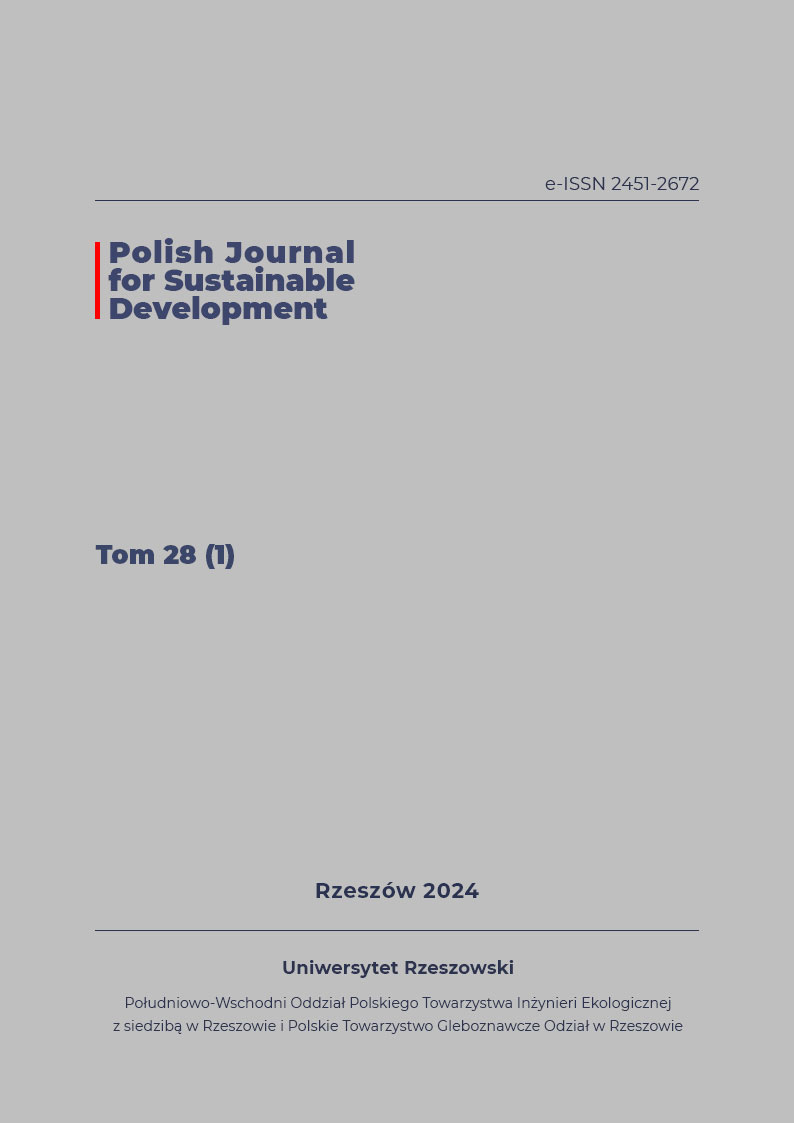Las Miyawaki jako sposób retardacji zmian spowodowanych nadmierną urbanizacją
DOI:
https://doi.org/10.15584/pjsd.2024.28.1.6Słowa kluczowe:
las kieszonkowy, sukcesja, korzyści ekofunkcjonalne, retardacjaAbstrakt
Intensywnie rozbudowujące się miasta są miejscem, w którym często napotykamy tereny o silnie zdegradowanych glebach. Założenie w takich miejscach terenów zieleni sprawia zwykle sporo kłopotów. Alternatywnym rozwiązaniem może być oddanie ich we władanie tak zwanej czwartej przyrody. Jeszcze ciekawszym pomysłem, z ekologicznego punktu widzenia, może być las kieszonkowy, nasadzenie zaproponowane przez japońskiego botanika Akira Miyawakiego. Wprawdzie początkowe etapy zalesienia są dość kosztowne i pracochłonne, szybko jednak możemy osiągnąć teren o znacznej ekofunkcjonalności. Powierzchnia lasu kieszonkowego może mieć zaledwie kilka m2 i wyśmienicie daje się wkomponować w krajobraz miasta. Jest znakomitym przykładem na próbę retardacji niekorzystnych zmian powodowanych przez nadmierną urbanizację.
Downloads
Bibliografia
Capotorti G., Del Vico E., Anzellotti I., Celesti-Grapow L. 2017. Combining the Conservation of Biodiversity with the Provision of Ecosystem Services in Urban Green Infrastructure Planning: Critical Features Arising from a Case Study in the Metropolitan Area of Rome. Sustainability. 9. 10. doi:10.3390/su9010010.
Gilhen‑Baker M., Roviello V., Beresford‑Kroeger D., Roviello G. N. 2022. Old growth forests and large old trees as critical organisms connecting ecosystems and human health. A review. Environmental Chemistry Letters. doi:/10.1007/s10311-021-01372-y.
Howard E. 1902. Garden Cities of To-Morrow. The Massachusetts Institute of Technology. Cambridge. 168.
Loudon J.C. 1829. Hints for Breathing Places for the Metropolis, and for Country Towns and Villages, on fixed Principles. The Gardener's Magazine and Register of Rural & Domestic Improvement. Vol. 5. Nr 23. 686-690.
Miyawaki A. 1999. Creative Ecology: Restoration of Native Forests by Native Trees. Plant Biotechnology. 16 (1). 15-25.
Miyawaki A. 2004. Restoration of living environment based on vegetation ecology: Theory and practice. Ecological Research. 19. 83-90.
Schirone B., Salis A., Vessella F. 2011. Effectiveness of the Miyawaki method in Mediterranean forest restoration programs. Landscape Ecol. Eng. 7. 81-92. doi: 10.1007/s11355-010-0117-0.
Taylor J. R., Taylor Lovell S. 2021. Designing multifunctional urban agroforestry with people in mind. Urban Agric Region Food Syst. 6:e20016. doi: /10.1002/uar2.20016.
Pobrania
Opublikowane
Numer
Dział
Licencja
Prawa autorskie (c) 2024 Polish Journal for Sustainable Development

Utwór dostępny jest na licencji Creative Commons Uznanie autorstwa – Użycie niekomercyjne – Bez utworów zależnych 4.0 Międzynarodowe.


